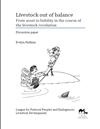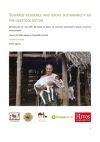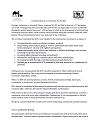To prevent the mass exodus of small-scale farmers and pastoralists, governments and development professionals need to provide a level playing field for these producers and help them avoid the debt trap.
This study by LPP member Evelyn Mathias investigates the impact of the Livestock Revolution on farmers.The results provide some major food for thought. They do suggest that livestock has turned in many cases from an asset into a liability, since farmers and livestock keepers, in order to remain competitive, are drawn into a debt trap, because of high initial investments on one side, and because they are squeezed between escalating input prices and the consolidated power of the food processors and supermarket chains on the other.
Due to the financial squeeze many farmers find themselves in a position that “forces them to cut costs wherever they can, and creates strong incentives to unethical behaviour.” This observation would seem crucial with respect to current concerns and initiatives to structure and channel the global livestock sector onto a more sustainable track.
 Title: Livestock out of balance: From asset to liability in the course of the livestock revolution. Discussion paperAuthor: Evelyn Mathias / League for Pastoral Peoples and Endogenous Livestock Development / 2012Description: To prevent the mass exodus of small-scale farmers and pastoralists, governments and development professionals need to provide a level playing field for these producers and help them avoid the debt trapFormat: ZipPages: 38Download document
Title: Livestock out of balance: From asset to liability in the course of the livestock revolution. Discussion paperAuthor: Evelyn Mathias / League for Pastoral Peoples and Endogenous Livestock Development / 2012Description: To prevent the mass exodus of small-scale farmers and pastoralists, governments and development professionals need to provide a level playing field for these producers and help them avoid the debt trapFormat: ZipPages: 38Download document



